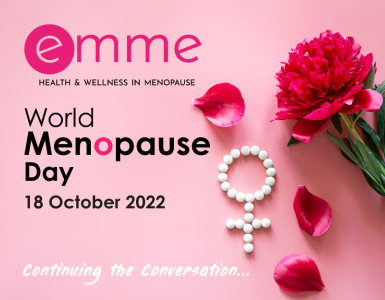Premature ovarian insufficiency is a condition where a woman’s ovaries stop functioning normally when a woman is aged below 40 years old.
The ovaries no longer produce normal levels of the hormone oestrogen or regularly release eggs. The condition often leads to infertility.
POI is different from a premature menopause, as unlike after the menopause, women with POI can still have periods (albeit irregularly) and can even become pregnant.
Symptoms of POI
The symptoms of POI can be similar to that of the menopause, which is why the two conditions are often confused. POI symptoms include:
- Irregular periods
- Missed periods
- Fertility problems
- Hot flushes
- Night sweats
- Mood changes
- Difficulty concentrating, or ‘brain fog’
- Vaginal dryness
- Low libido
If you have any of these symptoms and you haven’t had a period for three or more months, then make an appointment to see your GP.
Low oestrogen levels can lead to osteoporosis, depression, anxiety and heart disease, so even if you’re not trying to become pregnant, a significant change to your menstrual cycle should be investigated.
Causes of POI
There are a number of possible causes of POI. An autoimmune disease, possibly triggered by a viral infection, can cause the immune system to attack the cells of the ovaries, causing damage to the eggs.
Toxins, such as those caused by having chemotherapy or radiotherapy can lead to genetic damage, as can smoking and exposure to chemicals such as those in pesticides, which can lead to POI..
But sadly, the causes of POI are more often than not, unknown. However, there are factors that can increase the changes of a woman developing POI. These include being aged between 35 and 40 years old, having a family history of POI and previously having surgery to the ovaries.
Diagnosing POI
If you’ve visited your doctor for infertility reasons or missed periods, they may suspect POI. They will ask you general questions about your periods and medical history. They may also give you a pelvic examination and conduct some hormone blood tests.
Treating POI
One of the main treatments for POI is oestrogen therapy that can help prevent osteoporosis and manage symptoms such as hot flushes and night sweats. Often, oestrogen therapy is given alongside progesterone which can help protect the uterus from precancerous changes.
This combination of hormones may make your periods return but it’s unlikely to restore ovarian function.
If your doctor thinks you’re at risk of developing osteoporosis, they may also prescribe calcium and vitamin D supplements to help protect your bones.
If you have been diagnosed premature ovarian insufficiency but would like to have a family, do discuss this with your doctor and how IVF, a fertility treatment, can help you and what your options are. Click here to find out more
Being told you have premature ovarian insufficiency may mean that you need emotional support too. If you’re struggling emotionally, speak to your doctor about counselling, which can help enormously. Being gentle with yourself, honest and open with your partner and exploring your fertility options will also help.
For expert guidance on premature ovarian insufficiency visit the wonderful team at Hormone Health by clicking here
















